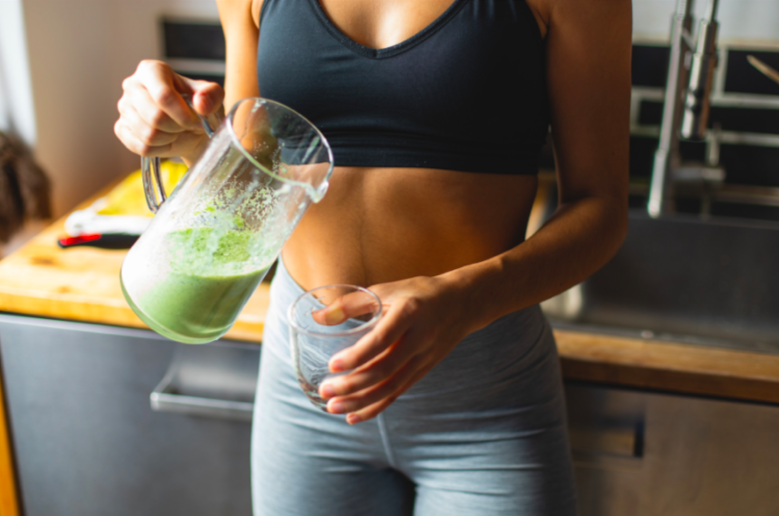While the exterior of our bodies wears the most noticeable changes when it comes to ageing, there are so many interior changes that you may not be aware of. Ageing is inevitable, so there is never a better time to start supporting your body through a preventative approach than now! Let’s look into the body and ageing and how we can support our bodies through the later phases of life.
Let’s talk changes
Wrinkles, slower movement and greying hair are some of the obvious changes that come to mind when you think of ageing. But what are some of the interior changes? As we get older our metabolism slows down, this can mean it’s easier to gain fat and harder to lose it. From age 30 onwards, our body loses muscle mass. The saying goes, “use it or lose it”, which means that unless you are working or building muscle, it will naturally deteriorate over time. This is partially because our body slows down on producing collagen, which is a building block for muscle mass. Collagen is also responsible for skin elasticity, so a lack of it results in skin sagging and wrinkles. Naturally, our hormone levels drop and change, this can result in not only physical changes but also mental changes to do with your mind, mood, memory, concentration and energy. (National Institute of Aging, 2023)
What can I do to help?
There are so many nutrients found in foods that can help your body to age well. Some of these include:
- collagen – creates an increase in the proteins found in the layers of the skin to enhance skin health overall (Al-Atif, 2022).
- Omega 3s – the anti-inflammatory effects from omega-3’s help to prevent ageing associated with muscle and strength loss. As low amounts of DHA and EPA (both found in omega 3) are associated with cognitive decline, dementia and alzheimer’s, supplementing higher amounts of omega 3 has shown protective effects against this in studies (Troesch et al., 2020).
- Zinc – helps to encourage collagen fibres and elastin production to enhance skin healing and firmness. Zinc is also beneficial for hormone production for both sex hormones and neurotransmitters as well as supporting the immune system to downregulate chronic inflammatory responses in the elderly (Haase & Rink, 2009).
- Antioxidants – reduce cellular damage to proteins, DNA and cell membranes caused by free radicals by neutralising them. This damage is largely linked to the ageing process in our bodies (Fusco et al., 2007).
- Ginseng – Ginseng has shown protective effects with ageing both physically and mentally due to its high antioxidant and anti-inflammatory properties (Yang et al., 2017).
Lifestyle wise there’s a lot that can be done too. Avoiding toxic substances such as alcohol, smoking and illicit drugs is a great place to begin. Your environment can also play a huge role here, for example if you’re exposed to mould or the cleaning products that you use daily. Getting outside in the fresh air and soaking up the sun is beneficial both physically and mentally in supporting healthy ageing. Moving your body daily not only helps to retain muscle and strength but also supports production of the feel good hormones to keep a healthy mind (Bosnes et al., 2019).
Just gets better with age
Like a fine red wine, that gets better as it ages, there’s no reason why you can’t have this mentality too! By taking little steps to help your body age gracefully with prevention in mind, you can age healthily and happily with a thriving physical and mental health. Don’t let getting older leave you feeling out of control, when instead you can feel empowered through your lifestyle and dietary choices.
References
Al-Atif H. (2022). Collagen Supplements for Aging and Wrinkles: A Paradigm Shift in the Fields of Dermatology and Cosmetics. Dermatology practical & conceptual, 12(1), e2022018. https://doi.org/10.5826/dpc.1201a18
Bosnes, I., Nordahl, H. M., Stordal, E., Bosnes, O., Myklebust, T. Å., & Almkvist, O. (2019). Lifestyle predictors of successful aging: A 20-year prospective HUNT study. PloS one, 14(7), e0219200. https://doi.org/10.1371/journal.pone.0219200
Fusco, D., Colloca, G., Lo Monaco, M. R., & Cesari, M. (2007). Effects of antioxidant supplementation on the aging process. Clinical interventions in aging, 2(3), 377–387.
Haase, H., & Rink, L. (2009). The immune system and the impact of zinc during aging. Immunity & ageing : I & A, 6, 9. https://doi.org/10.1186/1742-4933-6-9
National Institute of Aging, (2023). Understanding the dynamics of the aging process. Accessed on 29/06/2023, <https://www.nia.nih.gov/about/aging-strategic-directions-research/understanding-dynamics-aging>
Troesch, B., Eggersdorfer, M., Laviano, A., Rolland, Y., Smith, A. D., Warnke, I., Weimann, A., & Calder, P. C. (2020). Expert Opinion on Benefits of Long-Chain Omega-3 Fatty Acids (DHA and EPA) in Aging and Clinical Nutrition. Nutrients, 12(9), 2555. https://doi.org/10.3390/nu12092555
Yang, Y., Ren, C., Zhang, Y., & Wu, X. (2017). Ginseng: An Nonnegligible Natural Remedy for Healthy Aging. Aging and disease, 8(6), 708–720. https://doi.org/10.14336/AD.2017.0707




